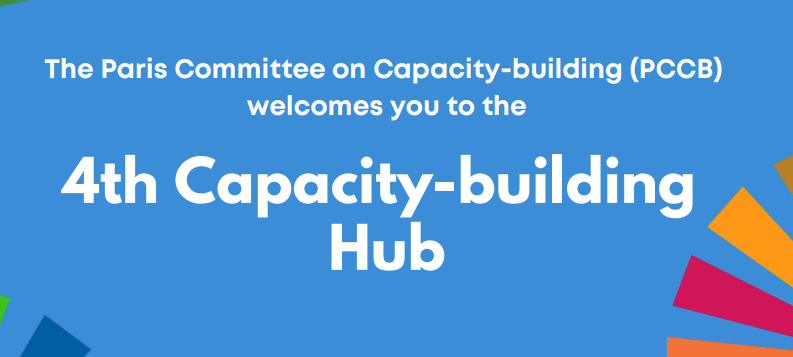As part of the Paris Committee on Capacity-building (PCCB), the Capacity-building Hub is a series of capacity-building-related sessions that focus on different themes, in conjunction with sessions of the Conference of the Parties (COP). The 4th Capacity-building Hub took place from November 9th-16th at COP27 in Sharm El-Sheikh, Egypt. The event sought to showcase efforts made towards greater climate actions in 2022 through the lens of capacity-building.
Hosted over the course of seven days in both weeks of COP27, the 2022 Capacity-building Hub was organized into thematic days focusing on issues directly linked to capacity-building with a view to supporting enhanced climate action at all levels. On November 10, the 4th Capacity-building Hub's Implementing Articles 6 & 13 Day took place. At the session, countries and several international leading agencies brought together their collective knowledge and experience on a sample of efforts they have undertaken to enhance their collective capacities to implement the Paris Agreement, specifically focusing on the implementation of the two Articles.
Among others, the German Ministry from Economic Affairs and Climate Action (BMWK) and the Federal Ministry for the Environment, Nature Conservation, Nuclear Safety, and Consumer Protection (BMUV) presented a selection of their global capacity-building programs. BMWK, through its Supporting Preparedness for Article 6 Cooperation (SPAR6C), is enabling four developing countries to participate in the international carbon market established under Article 6 of the Paris Agreement through low-emission development planning, governance framework development, and mitigation activity identification and development. BMUV is funding the Climate Action Programme for the Chemical Industry (CAPCI), which aims at strengthening the capacities of key stakeholders for effective climate protection in the chemical industry in three developing countries.
The Global Green Growth Institute (GGGI) looked into the urgent capacity-building needs for implementing the ETF and tackle the various layers of capacity, from the individual to national. GGGI launched its lessons learnt from the LT-LEDS it delivered for the Government of Ethiopia as well as capacity knowledge-product focusing on developing the MRV systems in Burkina Faso. This was followed by their innovating train the trainer program and a presentation on enhancing individual capacity through the resources provided by the UNFCCC.
The full report of the Article 6 & 13 session as well as the documentation of the entire Capacity-building Hub 2022 can be obtained from the UNFCCC website following the links below.
Further Information
Report of the 4th Capacity-building Hub
Presentations and recording of the Implementing Articles 6 & 13 of the Paris Agreement Day

